Is ChatGPT the Dawn of a New Era for Search Engines?
Written on
Chapter 1: Understanding ChatGPT
ChatGPT made waves in the tech world, attracting one million users within just five days of its launch in November. (Image by OpenAI)
In the ongoing saga of AI revolutionizing our lives, ChatGPT stands out, prompting widespread curiosity about its capabilities and limitations. The New York Times recently spotlighted the chatbot's unique features in an article that highlighted user interactions:
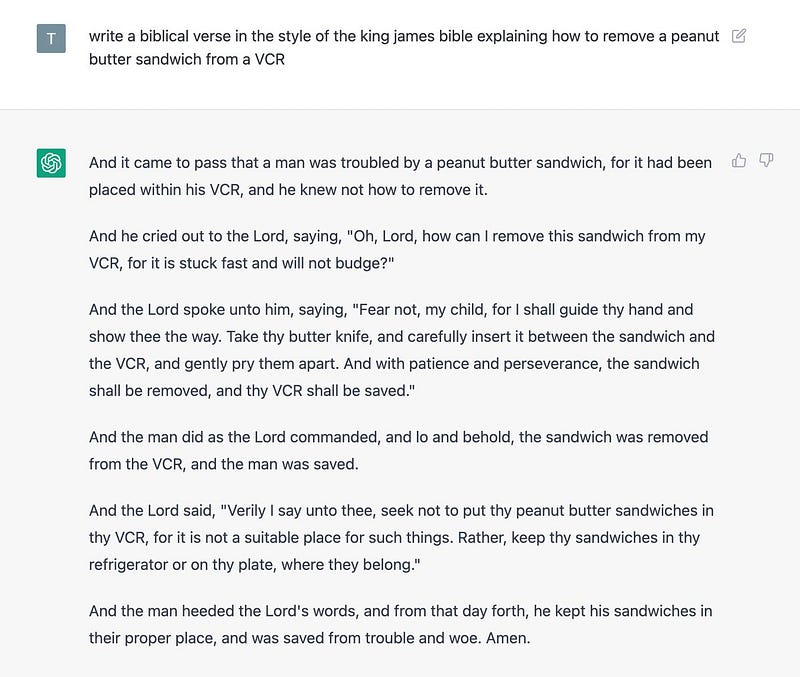
So, what exactly is ChatGPT? According to its own explanation:
GPT, or Generative Pre-trained Transformer, is a sophisticated AI model designed for producing text that closely resembles human writing. Developed by OpenAI, it has been trained on an extensive dataset of human-generated text, enabling it to create content that mimics the style and substance of its training material.
ChatGPT finds applications in various fields, from chatbots to language translation and summarization. As a language model, it predicts the next word in a sentence based on the preceding context, allowing for coherent and well-structured text generation.
In the realm of chatbots, GPT facilitates responses to user inquiries, fostering more natural and engaging dialogues. While ChatGPT excels at generating content with remarkable speed, it still struggles with brevity.
The crux of the matter is that ChatGPT functions as a language model that anticipates the next word in a sentence based on prior context, crafting responses aimed at being fluid and conversational.
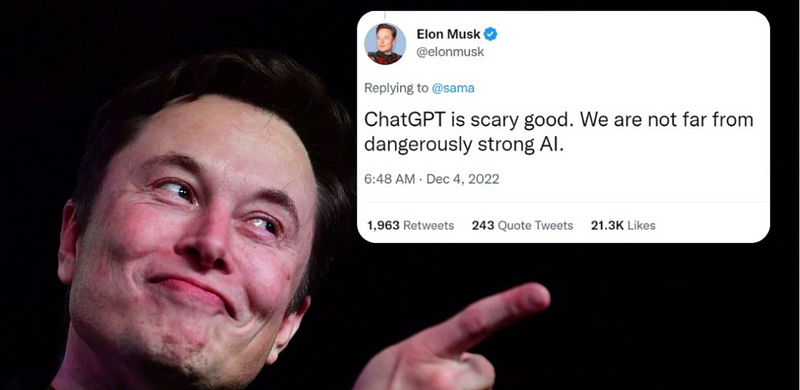
Tech luminary Elon Musk, one of its original founders, has described the system as "scarily impressive." (Image by news.com.au)
Beyond answering questions, ChatGPT can assist with tasks like coding, essay writing, generating AI prompts, and refining its responses based on user feedback. This raises ethical considerations about whether technology should be employed to monitor students for potential AI-assisted homework.
Advantages of ChatGPT
One of the standout features of ChatGPT is its ability to facilitate natural and engaging conversations. For instance, when I posed the same query to both Google and ChatGPT—"What drink can I make with elderflower liqueur and champagne?"—the responses were quite telling.
Google returned a list of over 2 million results, inundated with ads:
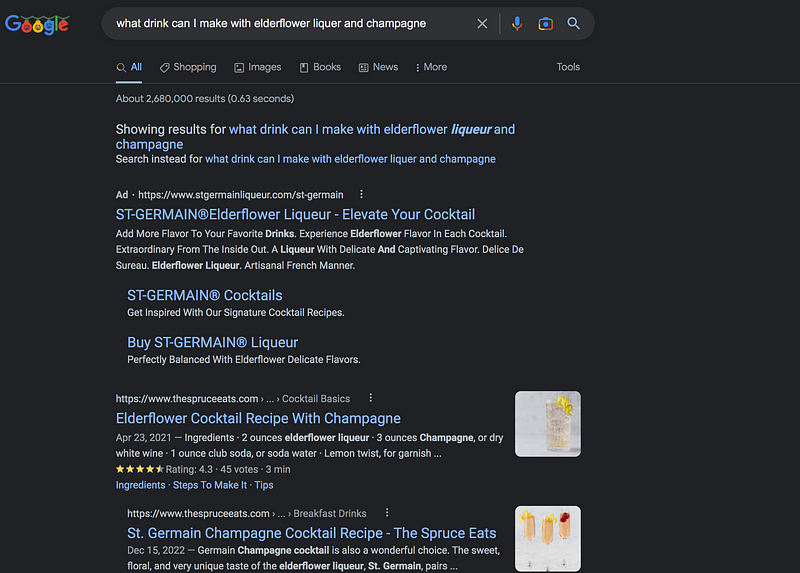
Conversely, ChatGPT provided:
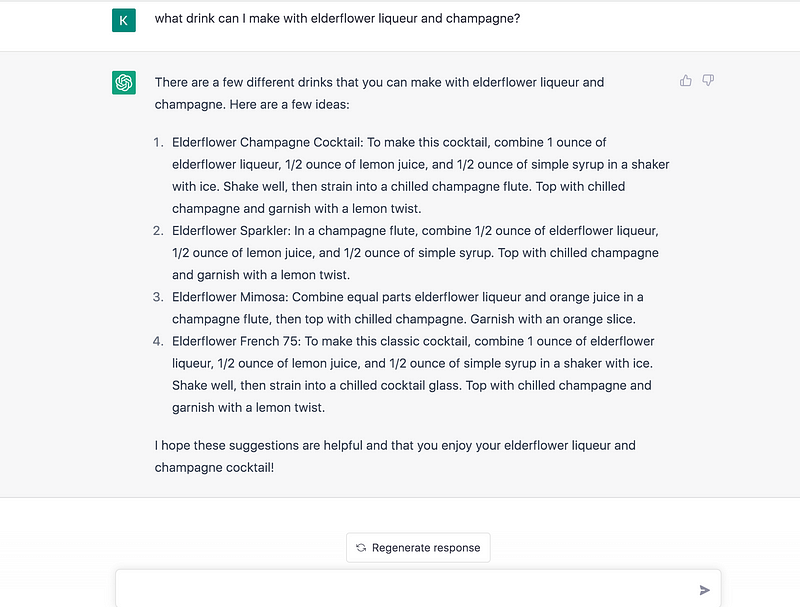
With ChatGPT, I can access the information I need without endless clicks, and the experience is less overwhelming. Unlike Google, which presents a cluttered interface, ChatGPT streamlines the output into a handful of options. If I desire more suggestions, I can utilize the "Regenerate response" button.
Moreover, ChatGPT fosters a conversational tone. Instead of drawing from a multitude of sources, it presents a single, cohesive response, creating the impression that I am interacting with the same entity each time.
Blind Spots
Although ChatGPT is a remarkable tool, it is not yet ready to replace Google. One significant limitation is its lack of credibility. While Google enables users to trace the origin of information easily, ChatGPT's responses can feel opaque, raising concerns about their accuracy.
Due to its predictive text mechanism, ChatGPT may inadvertently provide inaccurate information. Additionally, its knowledge is restricted to data available before 2021, making it somewhat outdated:

Despite these shortcomings, ChatGPT exemplifies the ongoing shift toward personalization in technology. In contrast to Google, which resembles a vast public library, ChatGPT offers a more tailored experience.
The tech industry is witnessing a surge in products designed with human-centric features aimed at capturing our interest. ChatGPT may herald a new trend where search engines adopt a more conversational approach rather than a purely factual one.
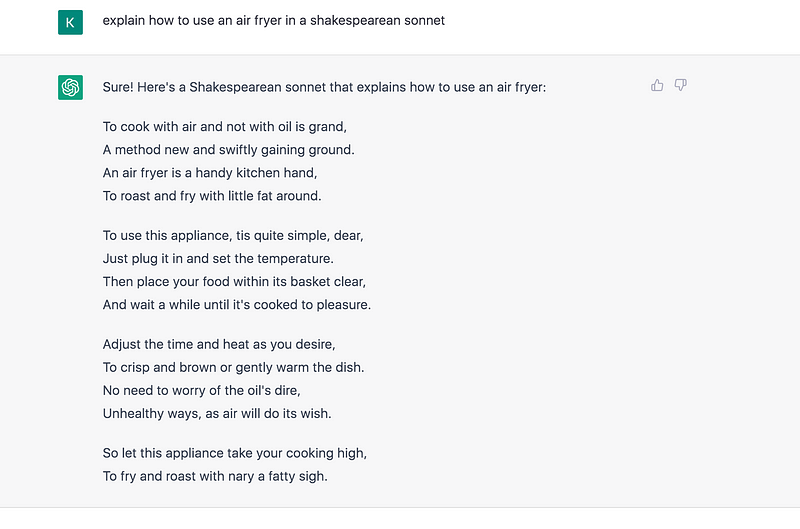
Whether or not Google will respond to these shifts remains to be seen, but the emergence of chatbot technology is certainly worthy of attention. By 2022, 80% of individuals had interacted with a chatbot, and nearly a quarter of customer service firms had integrated them into their operations.
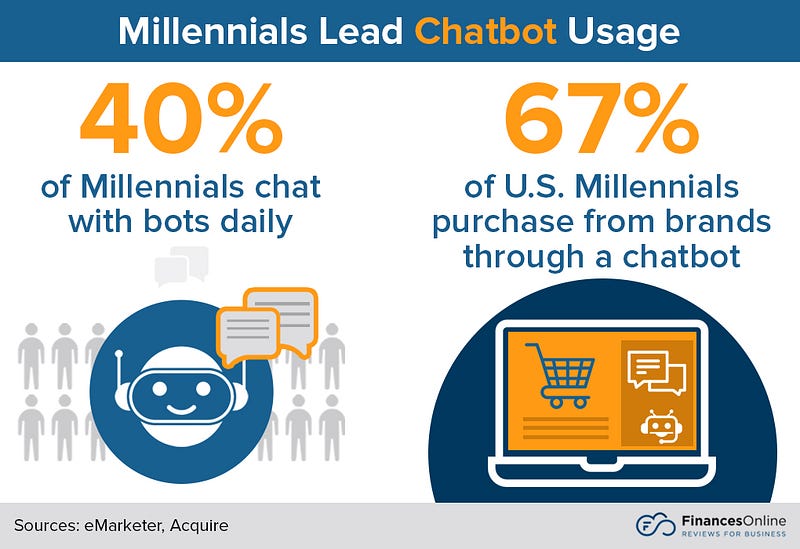
As chatbot usage and conversational design continue to rise, there will likely be a growing demand for writers in technology capable of humanizing these user interactions. Rather than viewing ChatGPT as a competitor, UX writers should embrace it as a dynamic platform, much like any human collaborator. It will be fascinating to observe whether these technologies are adapted as supportive tools for writers, akin to Grammarly or other online writing aids.
For further insights, check out the following videos:
The first video, "Is ChatGPT The End of Google Search? | Data Talks with Kat", delves into the implications of ChatGPT on traditional search engines and discusses the potential shifts in user behavior and industry standards.
In the second video, "Google Still Rolling Out Updates: Start & End Dates Are Confusing, Bing To Add ChatGPT, SEO Is Bad", the conversation revolves around the latest updates in search engine technology, including the integration of ChatGPT and its effects on SEO practices.